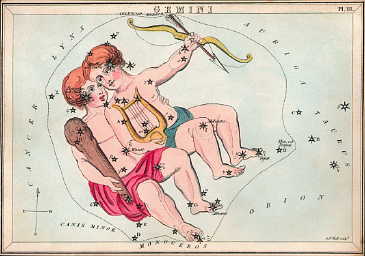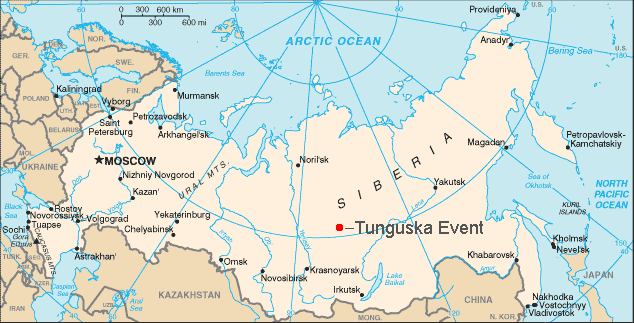June

Gemini: The Twins, Castor and Pollux.
Motto:
There is "true" Knowledge. Learn thou it is this: To see one changeless Life in all the lives, and in the separate, One Inseparable.
Phenomena:
JUNE 2O23
2 Venus trine Neptune
4 Mercury conjunction Uranus, Full Moon
5 Venus opposition Pluto
10 Moon’s last quarter
11 Mercury trine Pluto, Venus square Jupiter
15 Mercury square Saturn
18 New Moon
19 Sun square Neptune
21 Sun enters Cancer, Summer solstitse
25 Mercury square Neptune
26 Mars square Uranus, Moon’s first quarter
29 Sun trine Saturn
30 Mercury trine Saturn
Many years ago:
June 2
- Cagliostro; Count Alessandro Cagliostro, whose real name was Giuseppe Balsamo, born this day in 1743. Cagliostro was an Italian adventurer, magician and alchemist.
June 4
- Papoulias: Dr. Karolos Papoulias, born in Ioannina this day in 1929, has been the President of Greece since 2005. He was the Minister for Foreign Affairs from 1985 to 1989 and from 1993 to 1996.
June 5
- World Environment Day.
- Lorca: Federico del Sagrado Corazón de Jesús García Lorca, born this day in 1898, was a Spanish poet, dramatist and theatre director. García Lorca achieved international recognition as an emblematic member of the Generation of ’27. He was killed by Nationalist forces during the Spanish Civil War.
June 6
- Khachaturian: Aram Khachaturian, born this day in 1903, was an Armenian composer. Alongside Sergei Prokofiev and Dmitri Shostakovich, Khachaturian is sometimes called one of the three "titans" of Soviet music. Khachaturian is famous for the Adagio of Spartacus and Phrygia from his ballet Spartacus, and for the "Sabre Dance" from his ballet Cayane.
June 11
- Cousteau: Jacques Cousteau, a French naval officer and ocean explorer born this day in 1910.
June 13
- Yeats: William Butler Yeats (born 13 June 1865) was an Irish poet and one of the foremost figures of 20th century literature. Yeats was a driving force behind the Irish Literary Revival and founded the Abbey Theatre, where he served as its chief during its early years. In 1923 he was awarded the Nobel Prize in Literature. Yeats had a life-long interest in mysticism, occultism and astrology. He read extensively on the subjects throughout his life, became a member of the paranormal research organization The Ghost Club and was especially influenced by the writings of Emanuel Swedenborg.
- Fernando Pessoa: Fernando António Nogueira de Seabra Pessoa, born in June 13, 1888 was a Portuguese poet, writer, translator and philosopher, described as one of the most significant literary figures of the 20th century. Pessoa translated into Portuguese the poems The Raven, Annabel Lee and Ulalume by Edgar Allan Poe who, along with Walt Whitman, strongly influenced him. He also translated into Portuguese a number of books by leading theosophists such as C.W. Leadbeater and Annie Besant.
June 15
- Grieg: Edvard Grieg, a Norwegian composer, was born this day in 1843. He is widely considered one of the leading Romantic era composers, and his music is part of the standard classical repertoire worldwide. His Norwegian folk music compositions put the Music of Norway in the international spectrum.
- Assyrians record a solar eclipse in 763 BC, that is later used to fix the chronology of Mesopotamian history.
June 17
- Stravinsky: Igor Stravinsky, a Russian composer, born this day in 1882. Stravinsky's compositional career was notable for its stylistic diversity. He first achieved international fame with three ballets commissioned by the impresario Sergei Diaghilev and first performed in Paris b y Diaghilev's Ballets Russes: The Firebird, Petrushka and The Rite of Spring.
- Crookes: Sir William Crookes, born this day in 1832, was a British chemist and physicist who worked on spectroscopy. He was a pioneer of vacuum tubes. Crookes was the inventor of the Crookes radiometer. In 1870 Crookes decided that science had a duty to study preternatural phenomena associated with spiritualism. To find support and assistance for his research, he joined the Society for Psychical Research, becoming its president in the 1890s: he also joined the Theosophical Society and the Ghost Club, of which he was president from 1907 to 1912. In 1890 he was initiated into the Hermetic Order of the Golden Dawn.
June 18
- Schuon: Frithjof Schuon, born this day in 1907, was known as a philosopher, metaphysicist and author of numerous books on religion and spirituality. From his youth, Schuon's search for metaphysical truth led him to read the Upanishads and the Bhagavad Gita. Schuon is recognized as an authority on philosophy, spirituality and religion, an exponent of the Religio Perennis, and one of the chief representatives of the Perennialist School.
June 22
- Huxley: Sir Julian Huxley, English biologist and philosopher, was born this day in 1887. He was Secretary of the Zoological Society of London (1935–1942), the first Director of UNESCO, and a founding member of the World Wildlife Fund. His brother was the writer Aldous Huxley, and his half-brother a fellow biologist and Nobel laureate, Andrew Huxley.
June 23
- Turing: Alan Turing, an English mathematician, cryptanalyst and computer scientist born this day in 1912. Alan Turing is widely considered to be the father of computer science and artificial intelligence.
June 26
- UNO: June 26 1945: The Charter of the United Nations was signed in San Francisco by 50 of the 51 original member countries.
June 28
- Rubens: Peter Paul Rubens, a Flemish painter, was born this day in 1577. He is well known for his Counter-Reformation altarpieces, portraits, landscapes and history paintings of mythological and allegorical subjects.
- Rousseau: Jean-Jacques Rousseau, French philosopher, writer, and political theorist was born in Geneva this day in 1712.
- Yunus: Muhammad Yunus, a, Bangladeshi economist, Nobel laureate and founder of the Grameen Bank, an institution that provides small loans to poor people, was born this day in 1940.
June 29
- Saint-Exupery: Antoine de Saint-Exupery, French writer, poet and pioneering aviator was born this day in 1900. He is best remembered for his novella The Little Prince.
June 30
- Moody: Raymond Moody, American parapsychologist and medical doctor, is born this day in 1944. He is most famous as an author of books about life after death and near-death experience. His best-selling title is Life after Life.
- An enormous aerial explosion, presumably caused by a comet fragment colliding with Earth, flattened approximately 2,000 square km (500,000 acres) of pine forest near the Podkamennaya Tunguska River in central Siberia this day in 1908. It is the largest impact event in recorded history.

1. Judge the tree by its fruits, man by his deeds.
2. Theosophy is not the acquirement of powers, whether psychic or intellectual, though both are its servants.
3. Neither is Theosophy the pursuit of happiness, as men understand the word; for the first step is sacrifice, the second, renunciation.
4. Life is built up by the sacrifice of the individual to the whole. Each cell in the living body must sacrifice itself to the perfection of the whole; when it is otherwise, disease and death enforce the lesson.
5. Theosophy is the science of life, the art of living.
6. Harmony is the law of life, discord its shadow; whence springs suffering, the teacher, the awakener of consciousness.
7. Through joy and sorrow, pain and pleasure, the soul comes to a knowledge of itself.
8. The eyes of wisdom are like the ocean depths; there is neither joy nor sorrow in them. Therefore the soul of the disciple must become stronger than joy, and greater than sorrow.
9. We hate but those whom we envy or fear.
10. Self-knowledge is unattainable by what men usually call "self-analysis." It is not reached by reasoning or any brain-powers.
11. Real self-knowledge is the awakening to consciousness of the divine nature of man.
12. Will is the offspring of the Divine, the God in man; Desire, the motive power of the animal life.
13. Will is the exclusive possession of man. It divides him from the brute, in whom instinctive desire only is active.
14. To obtain the knowledge of self, is a greater achievement than to command the elements or to know the future.
15. The great watchword of the True is this — in last analysis all things are divine.
16. Fear is the slave of Pain, and Rebellion her captive.
17. Endurance is the free companion of Sorrow, and Patience her master.
18. The husband of Pain is Rapture, but the souls are few in whom that marriage is consummated.
19. Spirituality is not what we understand by the words "virtue" and "goodness." It is the power of perceiving formless, spiritual essences.
20. The discovery and right use of the true essence of Being — this is the whole secret of life.
21. When desire is for the purely abstract — when it has lost all trace or tinge of "self" — then it has become pure.
22. Adepts are rare as the blossom of the Udumbara tree.
23. The one eternal, immutable law of life alone can judge and condemn man absolutely.
24. Will and Desire are both absolute creators, forming the man himself and his surroundings.
25. Will creates intelligently; Desire blindly and unconsciously.
26. Man makes himself in the image of his desires, unless he creates himself in the likeness of the Divine, through his will, the child of the light.
27. Theosophy is the vehicle of the spirit that giveth life; consequently, nothing dogmatic can be Theosophical.
28. Some pluck the fruits of the tree of knowledge to crown themselves therewith, instead of plucking them to eat.
29. It is not necessary for truth to put on boxing-gloves.
30. You cannot build a temple of truth by hammering dead stones. Its foundations must precipitate themselves like crystals from the solution of life.
![]()









